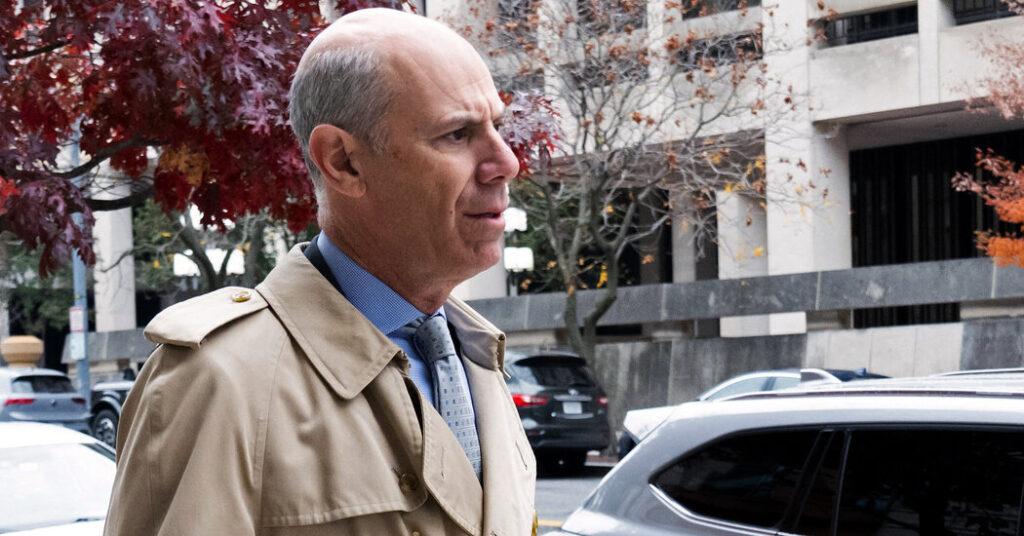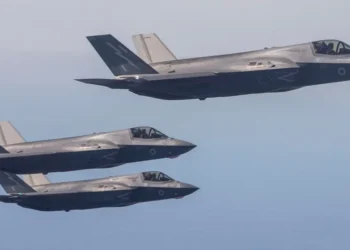Seven months ago, Judge James E. Boasberg sent a warning to the Justice Department, threatening to open a contempt investigation into whether the Trump administration had violated an order he had issued directing officials to stop flights of Venezuelan immigrants from being sent to El Salvador in March.
But Judge Boasberg’s efforts to hold the administration accountable for the flights — a move backed up by an explosive whistle-blower complaint — was put on hold by a higher court, where it languished for much of the year. It was largely forgotten as public attention pivoted elsewhere in the endless flow of news that has marked President Trump’s second term in office.
On Wednesday, however, the contempt proceeding suddenly came back to life as Judge Boasberg, in the wake of an appeals court ruling late last week, took the bench at a hearing in Federal District Court in Washington and laid out a series of next steps in his investigation.
The judge said he wanted to hear testimony from witnesses who were involved in the deportation case — chief among them Erez Reuveni, a former Justice Department lawyer who had worked on the matter and filed the whistle-blower complaint that touched on his role in it after he was fired by the department in a related proceeding.
The judge said he also might want to hear from Drew Ensign, another Justice Department lawyer who had conveyed to administration officials his initial order to stop the flights of immigrants.
At the hearing, a different lawyer for the department told Judge Boasberg that the administration opposed reopening the long-stalled contempt investigation. But the judge had little patience for the objection.
“I intend to proceed just like I did in April, seven months ago,” he said, adding, “This has been sitting for a long time and justice requires me to move quickly.”
The resurrected inquiry could finally get to the bottom of questions that have lingered since the first few months of the Trump administration: Did any top officials at the Justice Department or at other federal agencies purposefully disregard Judge Boasberg’s order to stop the planes from going to El Salvador? And if so, who? And why?
Lee Gelernt, a lawyer for the American Civil Liberties Union, which has been representing the Venezuelan men, said he believed that Judge Boasberg would eventually get answers to the questions.
“He was right to want to investigate at the beginning of the summer and now there’s a mountain of additional evidence showing the Trump administration deliberately violated his order, an order that would have spared these individuals months of extreme abuse and torture,” Mr. Gelernt said.
The deportation flights were part of an early effort by the White House to send scores of Venezuelan men accused of being members of the violent street gang Tren de Aragua to a notorious prison in El Salvador under the expansive authority of a wartime law passed more than two centuries ago. That law, known as the Alien Enemies Act, gives the president sweeping powers to detain and deport members of a hostile foreign nation in a time of war or during an invasion of the country.
The question of whether Mr. Trump used the act properly to expel the Venezuelans is now being considered by a different court in Texas and is likely to ultimately make its way to the Supreme Court. Judge Boasberg’s contempt proceeding will focus solely on the issue of whether administration officials complied with his instructions during an emergency Zoom hearing on March 15 to ground any deportation flights bound for El Salvador that day and turn around any planes that were already in the air.
That never happened, leaving nearly 140 Venezuelans in the custody of jailers at El Salvador’s notorious Terrorism Confinement Center, or CECOT. Those men were subsequently sent back to their homeland. Some are seeking, in a new action that was also argued on Wednesday, to get an order from Judge Boasberg that would allow them to return to the United States.
According to Mr. Reuveni’s complaint, a pivotal meeting about the deportation flights occurred on March 14, when Emil Bove III, then an official in the deputy attorney general’s office, spoke bluntly about the administration’s plans. Mr. Bove informed his subordinates that Mr. Trump would soon invoke the Alien Enemies Act to fly the immigrants out of the country that same weekend. Two other officials in the deputy attorney general’s office — James McHenry and Paul Perkins — were in attendance, as well as Mr. Reuveni’s supervisors, Mr. Ensign and August Flentje, according to the whistle-blower document.
Mr. Bove “stressed to all in attendance that the planes needed to take off no matter what,” according to Mr. Reuveni’s account. Mr. Bove then broached “the possibility that a court order would enjoin those removals before they could be effectuated.”
“Bove stated that D.O.J. would need to consider telling the courts ‘fuck you’ and ignore any such order,” according to the account. “Mr. Reuveni perceived that others in the room looked stunned, and he observed awkward, nervous glances among people in the room. Silence overtook the room.”
The No. 2 official at the Justice Department, Todd Blanche, has denied Mr. Reuveni’s account.
Judge Boasberg’s initial order laying out the contempt investigation outlined an aggressive process for figuring out what had happened inside the administration. He said, for instance, that he might go so far as to refer the case to the Justice Department for criminal prosecution if he determined there had been contempt.
Moreover, recognizing the unlikelihood that the department under Mr. Trump’s control would actually bring charges, he said he would consider another final gambit: using a special provision of the criminal contempt law that permits him, as the judge in the case, to appoint a lawyer from outside the department to prosecute contempt.
A three-judge panel of the federal appeals court in Washington, citing those aggressive proposals, killed the inquiry temporarily but said that Judge Boasberg could move forward if it managed to avoid being coercive.
Lawyers for the A.C.L.U. then asked the full appeals court to consider the panel’s ruling. And on Friday, the court effectively sent the case back to Judge Boasberg, saying he could proceed.
“Respect for judicial orders, and courts’ independence, are essential to the rule of law,” the appeals court wrote.
Alan Feuer covers extremism and political violence for The Times, focusing on the criminal cases involving the Jan. 6 attack on the Capitol and against former President Donald J. Trump.
The post Stalled Contempt Inquiry Into Deportation Flights Springs Back to Life appeared first on New York Times.




